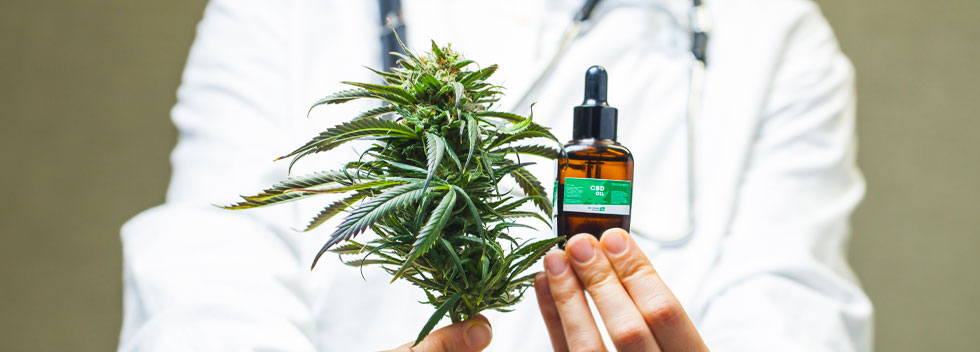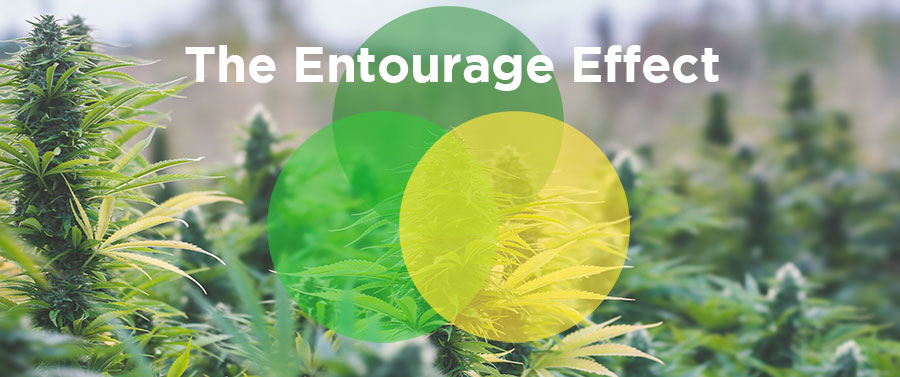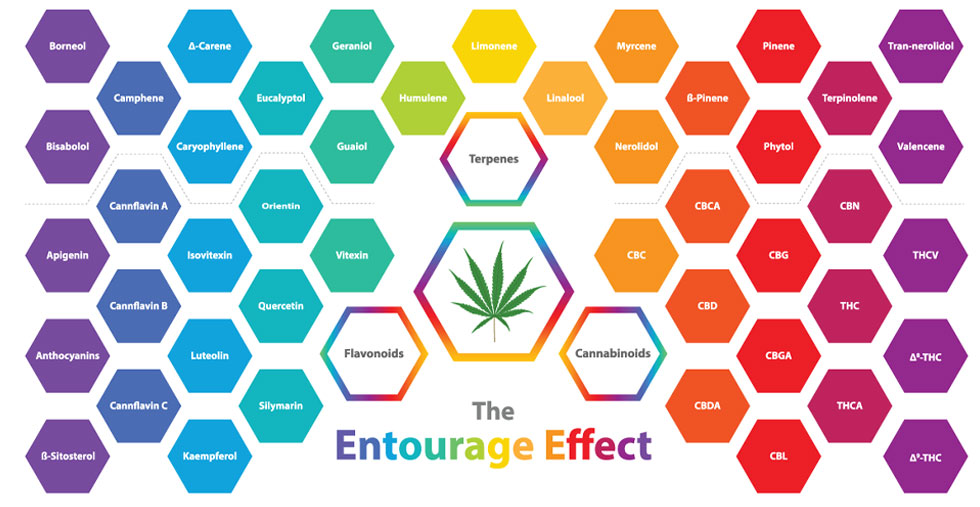When we mention “entourage effect” we are referring to the theory that different compounds in cannabis can work together in harmony to vary the plant’s psychoactive strength as well as achieve improved health benefits. A simple example of the entourage effect: taking THC and CBD together can be more effective than taking either alone. High doses of THC by itself can be intoxicating. Some patients have a hard time getting over these side effects, which minimizes the symptom relief THC was intended for. So bring in CBD to counteract the negative side-effects of the THC and make it much more tolerable for patients.
A 2010 study sponsored by GW Pharma saw patients that were given a THC/CBD combination having less pain than those given just THC. There’s also tons of anecdotal evidence suggesting that the mix of cannabis compounds improves health benefits. Though, the entourage effect is still a theory. Much more research is needed to be performed in order to confirm it.
How does CBD counteract THC?
THC (Tetrahydrocannabinol), the most prominent cannabinoid in the cannabis plant, binds to the CB1 receptors in the body’s endocannabinoid system. CB1 receptors are found primarily through the brain and nervous system, and when THC binds to them the “high” occurs. So do some side effects: altered mood, impaired body movement, difficulty with problem-solving, disorientation, to name a few.

CBD, the non-intoxicating component of cannabis, binds to CB1 receptors, as well, but in a different position than THC. This is thought to block the ability of THC to overstimulate the brain, thus also minimizing THC’s negative side effects.
On its own, CBD is often used to ease the symptoms of many common health conditions. It’s non-intoxicating (won’t get you high). For more information on CBD, visit Southern Comfort Wellness.
This study of “Cannabidiol Counteracts the Psychotropic Side-Effects of THC” concluded that CBD did indeed counteract THC’s effects. It must be said again, however, more research is needed to prove what, at the moment, is still a theory. The cannabis plant is extremely complex, and all of its compounds are being studied for their effects on the human body.
Out of all those compounds, three main groups contribute toward the entourage effect.
Phytocannabinoids – a family of compounds in the cannabis plant. THC, CBD, CBG.
Terpenes – Terpenes give cannabis that unique, pungent smell and have a lot to do with the flavor of the plant, as well.
“Terpenes also work together with cannabinoids to impart unique effects. The cannabis plant contains up to 220 different terpenes: pinene, limonene, linalool, myrcene, humulene, terpineol, bisabolol, and eucalyptol, trans-nerolidol, and beta-caryophyllene are some of the most common. Beta-caryophyllene – the peppery terpene – is also a cannabinoid as it interacts with the cannabinoid receptor, CB2.
Compounds like linalool (lavender) and myrcene (hops) have relaxing effects that could be useful for treating anxiety disorders. A mixture of pinene and limonene can also be relaxing but also stimulating and could help treat conditions such as attention-deficit hyperactivity disorder (ADHD) and a way to reduce amphetamine intake.” Leafwell
Flavonoids – the flavor compounds. Flavonoids contribute to the color and flavor of the cannabis plant.
Compounds working together
Cannabinoids, terpenes and flavonoids all interact and give different effects based on their combinations. For example, it has been reported that low doses of THC, CBD, linalool, and myrcene could be great for treating anxiety.
Obviously, Low THC + High CBD would yield lesser psychoactive effects.
When it comes to medical marijuana (cannabis) therapy, our doctors and medical staff are most concerned with finding the right combination(s) for each individual patient’s success. Some patients may not need an entourage to their medicine. For those that do, there isn’t a one-size-fits-all answer to what a good dosage combination would be – it all depends on you and the conditions you’re treating cannabis with. We’d love to answer any questions you have. Contact us here.
READ MORE: Qualifying for Medical Marijuana
The theory that a mixture of cannabinoids is more tolerable, and beneficial, than THC alone is not confirmed or proven.




